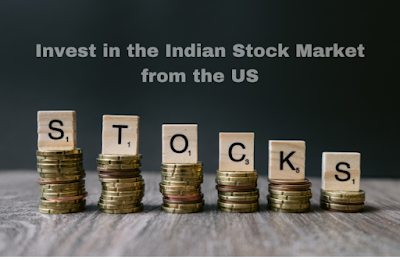Hi, I heard you say that you are a better cricketer than Sachin Tendulkar!
No? You didn't? It's unthinkable, impossible, and utterly preposterous?
Fair enough! I agree.
You probably may not have the right skills. You have definitely not been coached for it. And, surely you haven't put in the years of training into it. In fact, maybe you look around for a 'maiden-in-a-mini-skirt' when someone mentions 'fine leg'.
So yes, you can’t just wake up one day and magically score centuries like Sachin.
I guess I made a ‘silly point’ (pun intended)!
Well, okay. It wasn’t your words per se. But your actions certainly suggest that you really believe so.
Am I still wrong? Or mistaken?
No, I am not. I saw you buy some shares at the stock market last week.
What's that got to do with being 'better than Sachin'?
Everything, my friend. Everything.
Of course, I fully appreciate the irresistible charm and allure of the stock market. It's like a blockbuster movie. Promises of huge chartbusting returns overnight! So, it's no surprise to find millions attracted to it like a swarm of bees. But, spoiler alert: Most who enter the world of stock market are the poor souls who end up eating dust.
Why?
First, let's be honest here. Do you really think you can beat a professional mutual fund manager at his own game?
And second, even if God gave you 100% guaranteed stock ideas, are you smart enough to make money out of it? I don't think so!
Let’s explore:
Can you beat a professional fund manager?
The fund manager:• Has the right qualifications. He knows how to read a balance sheet without getting a headache. You, on the other hand, probably think "P&L" refers to the latest gossip on social media.
• Has abundant experience. He's seen every market crash and bounce like it's his second nature. You? You've seen every market trend on Instagram.
• Can decode economic data like a ninja. You? Well, you're just trying to remember what "bullish" means — aside from that big, angry animal you saw at the zoo. I bet you can barely calculate RoE, RoCE, etc.
• Has a team of analysts and researchers working 24/7. You have your best friend, who once told you "stocks are the best way to make money." They watched a video on it once.
• Meets company CEOs for lunch. You meet your friends for chai. Do you even know the company's name except its ticker symbol? The business it runs? Men and women who manage the company? Competitors? Financials? No, I suppose not.
• Has a massive war chest of money to diversify and manage risks. You instead are looking for 'one-pe-one free' pizza offers, for you and your 'equally broke' friend.
The mutual fund manager's dice? Heavily Loaded.
It's like you going up against Starc, Cummins and Co. with a plastic bat. It's not going to work out dear friend, no matter how hard you try.
You're not that delusional, right?
Do you have the right aptitude for the game?
Now let's talk about the big masala myth that keeps all the wannabe stock traders buzzing: The "Get Rich Quick" myth.You've heard it, right? Shares can make you huge returns in just days or weeks. That's the dream! You're just one "hot stock" away from driving a Lamborghini.
But let's call a spade a spade: This is a mirage. Sure, it happens once in a blue moon (and probably only to those with ahem insider information). You might get lucky once or twice — maybe even once every thousand tries. But trust me, 99% of the time, you'll end up chasing a phantom like a dog chasing its tail.
It's like thinking you can win a marathon by only practicing for 10 minutes a day. The only thing you'll win is a pulled muscle and a week of bed rest.
And don’t even get me started on the so-called gurus — the brokers, advisers, and "experts" who are out there on TV and YouTube every day waving shiny objects in front of your face, promising you the moon. If they knew the next big thing, wouldn't they just relax in Switzerland, sipping masala chai and watching the money roll in; instead of struggling everyday for some measly brokerage and a few minutes of fame.
Think. Think hard!!!
So is the stock market a big, crazy casino where the house always wins?
Nope. Not at all.In fact, the stock market is one of the best ways to grow wealth, but there's a big catch: It's not about luck, it's about the right strategy. It's like making biryani — get the right ingredients, cook for the right time and it's a feast; mess it up, and you end up with a soggy disaster.
Here's the hard truth:
• Investing in stocks requires expertise. The kind of expertise you don't just magically wake up with after watching a couple of YouTube videos.
• Long-term investing (think 10-15 years) has, historically, never lost money for disciplined investors. You need patience, my friend. Patience. That's the spice that makes everything worth it.
• Those who stay calm and disciplined — even when the market is screaming like a Bollywood villain — get rewarded in the end. Those who panic, chase trends, and think they're "smarter than the market or the fund manager"? They are left with nothing except egg on their face and empty bank accounts.
So here you decide:
Do you want to gamble your money on short-term thrill-seeking, or do you want to invest it thru' a seasoned professional and see it grow over time?You know the answer.
It's your hard-earned money that's on the line. Choose wisely. You could probably end up with as much wealth as Sachin, without even stepping on the ground.
Remember: The stock market is no place for amateurs to play hero.













